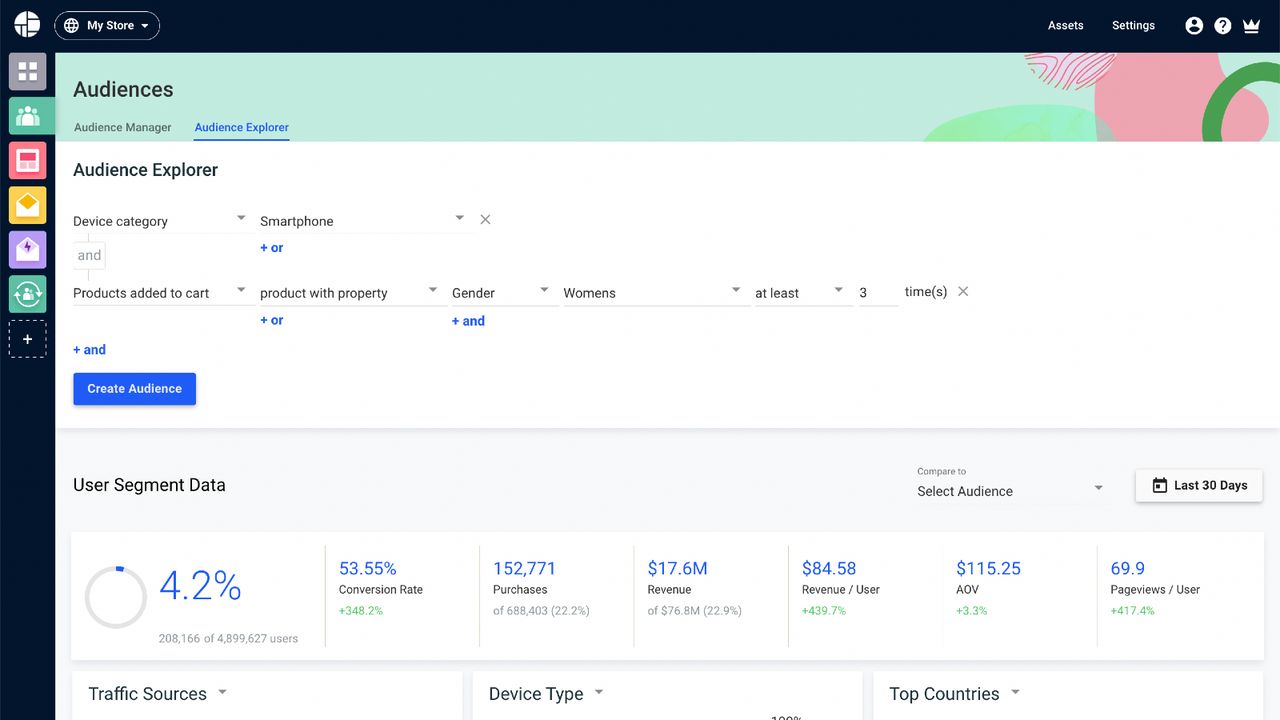Alternatives to Amazon Personalize
1. Adobe Target
+Pros
- Deep Adobe Experience Cloud integration
- AI-powered personalization capabilities
- Omnichannel delivery spanning web, mobile, email, and IoT channels
-Cons
- Implementation complexity requiring 6-12 month timelines
- Substantial cross-functional team coordination
- Vendor lock-in risks due to proprietary data schemas
One highlighted feature and why it's amazing
Algorithmic experience selection for personalized user experiences.

Another highlighted feature of why it’s amazing
Dynamic content matching for next-hit personalization by processing real-time session data.
2. Algolia
+Pros
- Proven search speed performance with documented sub-50ms response times.
- Hybrid vector-keyword architecture providing unique technical differentiation.
- Validated customer outcomes demonstrating measurable business impact.
-Cons
- Dependency on structured product data for optimal performance.
- Ongoing optimization requirements through biweekly relevance tuning cycles.
- Pricing transparency challenges particularly for enterprise tiers.
One highlighted feature and why it's amazing
Combines vector-based semantic understanding with traditional keyword search through a single API, enabling contextual understanding of ambiguous queries while maintaining exact-match capabilities for specific product searches.

Another highlighted feature of why it’s amazing
Operates through three integrated functions that enhance search relevance without manual intervention: Query Understanding, Retrieval, and Dynamic Re-Ranking.
3. Dynamic Yield
+Pros
- Real-time targeting capabilities and A/B testing workflows
- Integration with Mastercard's data ecosystem providing unique behavioral insights
-Cons
- Implementation complexity requiring substantial technical integration and planning phases
- Custom-quoted pricing model lacking transparency
One highlighted feature and why it's amazing
Dynamic Yield's primary capability centers on real-time behavioral analytics and predictive targeting, enabling personalized experiences across customer touchpoints through machine learning algorithms that analyze visitor behavior patterns to deliver dynamic content recommendations.

Another highlighted feature of why it’s amazing
The platform's unique differentiator lies in its Predictive Spend Insights capability, which leverages Mastercard's extensive transaction data for geo-based behavioral modeling.
Other Alternatives
Google Recommendations AI
Monetate Personalization Platform
Nosto Commerce Experience Platform
Salesforce Einstein GPT
Wisepops
How We Researched This Guide
About This Guide: This comprehensive analysis is based on extensive competitive intelligence and real-world implementation data from leading AI vendors. StayModern updates this guide quarterly to reflect market developments and vendor performance changes.
224+ verified sources per analysis including official documentation, customer reviews, analyst reports, and industry publications.
- • Vendor documentation & whitepapers
- • Customer testimonials & case studies
- • Third-party analyst assessments
- • Industry benchmarking reports
Standardized assessment framework across 8 key dimensions for objective comparison.
- • Technology capabilities & architecture
- • Market position & customer evidence
- • Implementation experience & support
- • Pricing value & competitive position
Research is refreshed every 90 days to capture market changes and new vendor capabilities.
- • New product releases & features
- • Market positioning changes
- • Customer feedback integration
- • Competitive landscape shifts
Every claim is source-linked with direct citations to original materials for verification.
- • Clickable citation links
- • Original source attribution
- • Date stamps for currency
- • Quality score validation
Analysis follows systematic research protocols with consistent evaluation frameworks.
- • Standardized assessment criteria
- • Multi-source verification process
- • Consistent evaluation methodology
- • Quality assurance protocols
Buyer-focused analysis with transparent methodology and factual accuracy commitment.
- • Objective comparative analysis
- • Transparent research methodology
- • Factual accuracy commitment
- • Continuous quality improvement
Quality Commitment: If you find any inaccuracies in our analysis on this page, please contact us at research@staymodern.ai. We're committed to maintaining the highest standards of research integrity and will investigate and correct any issues promptly.